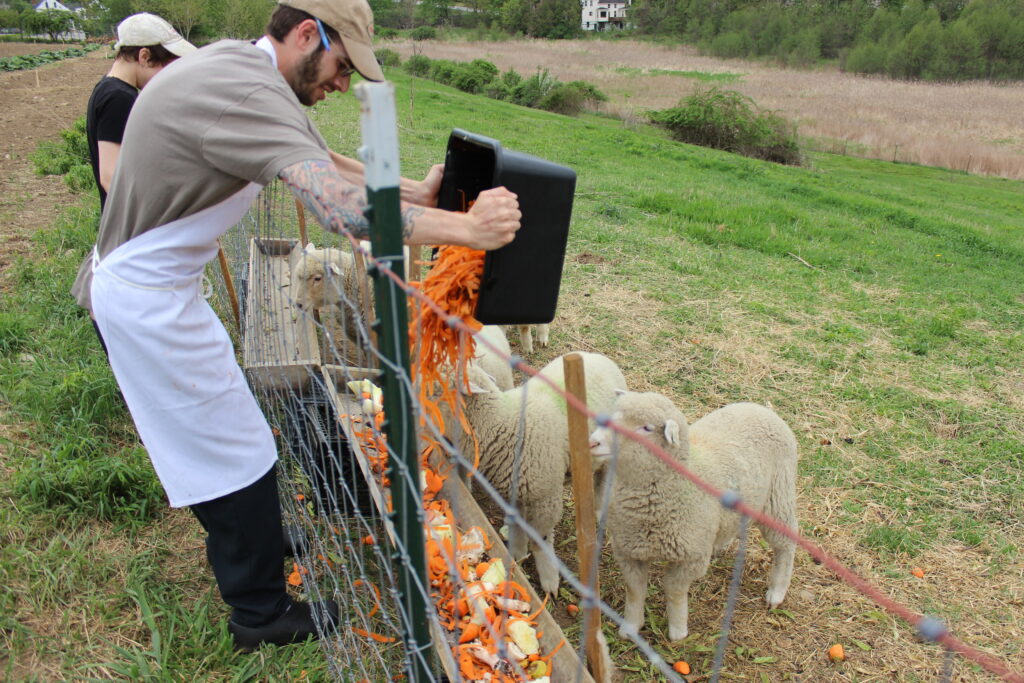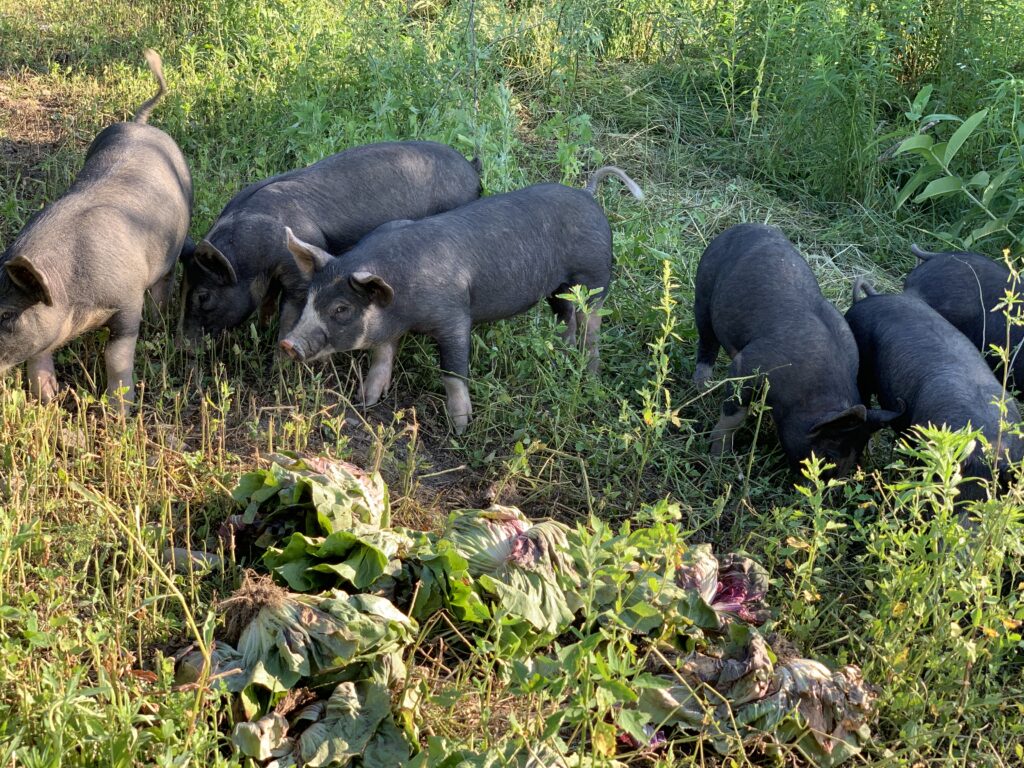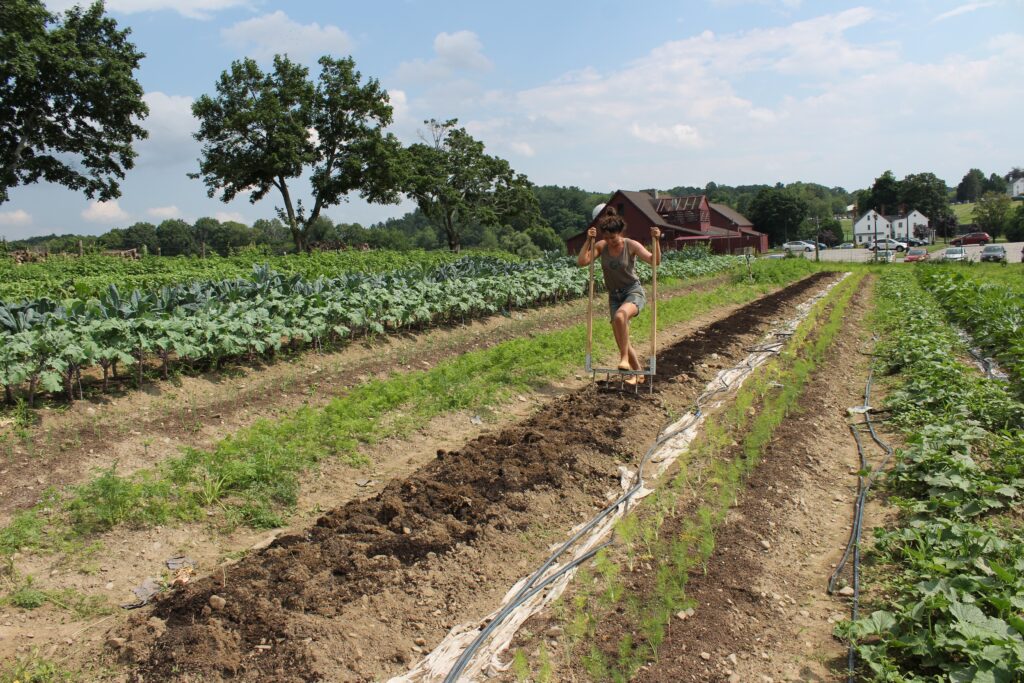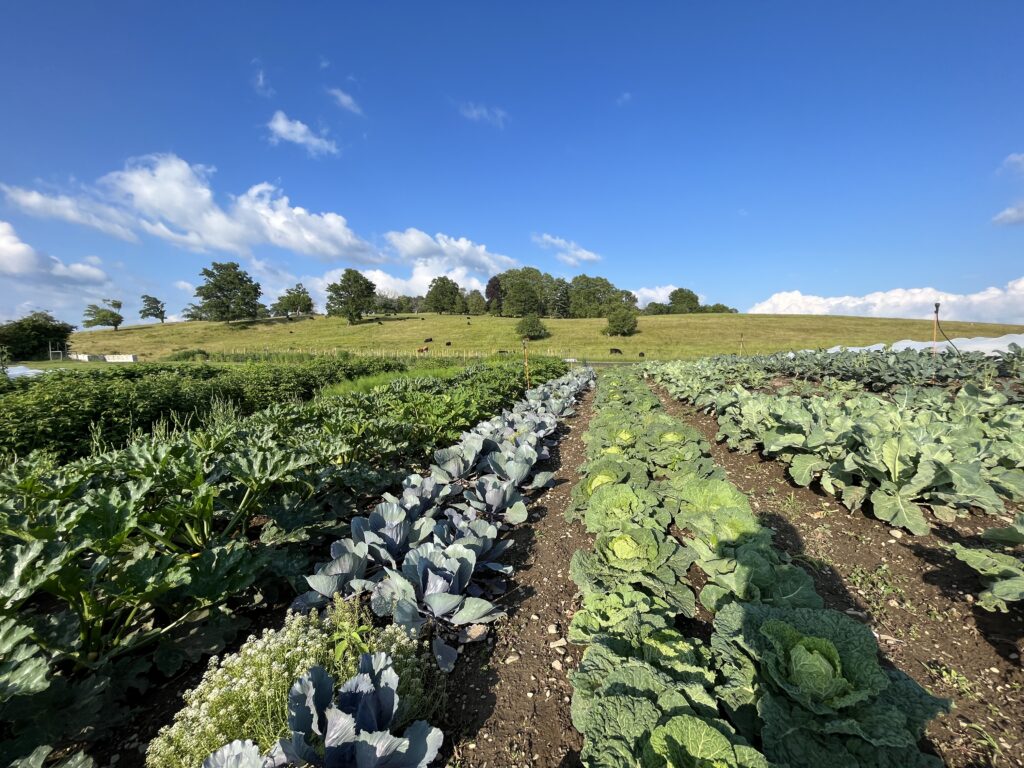A major part of our mission at Gibbet Hill Farm is to educate and connect our community to farming and the local food system. We do this through a variety of seasonal offerings, including our Gibbet Hill Farm Field School, where we host hands-on workshops on topics like gardening, preserving, foraging, and more. We also invite guests to experience the farm through our Gibbet Hill Farm Dinners, which highlight the beauty of the property, the bounty of the season, and offer time with our farm crew to learn about our farm and the vegetables that were harvested for the dinner.
For our younger growers, the Young Farmers Club offers kids the chance to dig in and learn what it takes to grow their own food. Registration for this popular 8-week summer program opens each spring – check back then for details!
Follow us on Instagram or Facebook to stay up to date on all things happening at the farm.
Or, sign up for our newsletter to be the first to know when tickets, events, and classes go live.
Tickets for farm dinners and Field School workshops are available through our Eventbrite page during the spring, summer, and fall.




